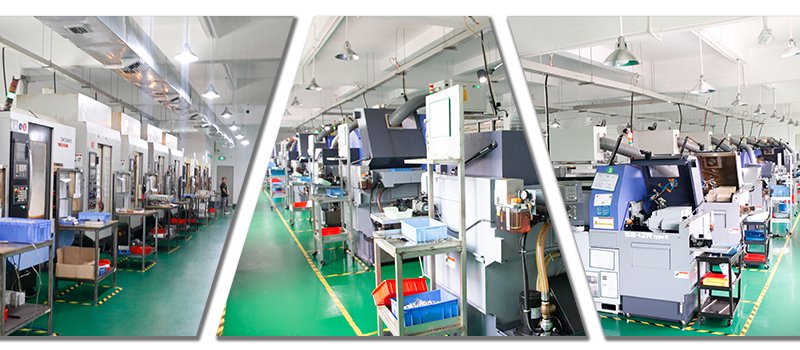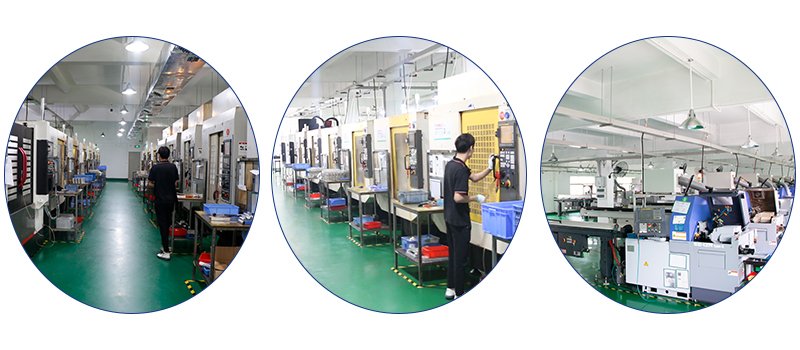The world of smart glasses is evolving rapidly, with technology giants and startups alike vying to create sleeker, smarter, and more functional designs. However, behind every cutting-edge device lies a complex process of material selection and manufacturing. As an expert in CNC machining at YL-Machining, I’ve seen firsthand how choosing the right materials can make or break a product—both in performance and sustainability. Let’s dive deep into this critical topic to uncover the secrets to creating high-quality, eco-friendly smart glasses components.
Why Material Choice Matters in Smart Glasses Manufacturing
Have you ever wondered why some smart glasses feel sturdy yet lightweight while others seem fragile or uncomfortable? The answer often lies in material selection. For manufacturers, the stakes are high: the wrong choice can lead to durability issues, uncomfortable designs, or even failure in real-world use. But it doesn’t stop there. Material selection also impacts:
- Performance: Different materials offer varying levels of strength, flexibility, and thermal stability, all of which are crucial for electronics.
- Aesthetics: The look and feel of smart glasses often determine their market appeal.
- Sustainability: With global attention on environmental impact, companies must consider the eco-friendliness of their materials.
At YL-Machining, we’ve tackled numerous projects that required balancing these factors. Through CNC machining, we’ve been able to precisely work with diverse materials to meet the specific demands of smart glasses manufacturing.
Popular Materials for Smart Glasses Components
The components of smart glasses—such as frames, hinges, and electronic housings—require materials that offer both form and function. Below, I’ll break down the most common materials we work with, highlighting their pros, cons, and sustainability.
1. Aluminum
Aluminum is a favorite in CNC machining due to its lightweight nature and excellent machinability. For smart glasses:
- Pros: High strength-to-weight ratio, corrosion resistance, and sleek finish options.
- Cons: Relatively expensive compared to plastics.
- Sustainability: Aluminum is highly recyclable, making it an eco-friendly choice.
2. Stainless Steel
Known for its durability, stainless steel is often used in hinges and other high-wear parts.
- Pros: Exceptional strength and resistance to wear and corrosion.
- Cons: Heavier than aluminum, which can affect the comfort of smart glasses.
- Sustainability: Stainless steel is also recyclable, but its energy-intensive production process can be a drawback.
3. Titanium
Titanium’s premium properties make it ideal for high-end smart glasses.
- Pros: Extremely lightweight, strong, and hypoallergenic.
- Cons: Higher cost and more challenging to machine.
- Sustainability: Similar to aluminum, titanium is recyclable but has a high initial energy cost.
4. Plastics (e.g., Polycarbonate and Nylon)
Plastic materials are widely used for frames and housings due to their versatility.
- Pros: Lightweight, cost-effective, and available in various colors and finishes.
- Cons: Lower durability and potential environmental concerns.
- Sustainability: Bioplastics and recycled plastics are emerging as greener alternatives, but traditional plastics still dominate.
5. Composite Materials
Carbon fiber composites and other advanced materials are gaining traction for premium designs.
- Pros: High strength, lightweight, and visually appealing.
- Cons: Expensive and more difficult to process with CNC machining.
- Sustainability: Recycling composites remains a challenge, though efforts are underway to improve.
Balancing Sustainability with Functionality
When it comes to sustainability, the tech industry faces growing pressure to reduce its environmental footprint. For smart glasses, this means adopting practices and materials that minimize waste and energy use. CNC machining, in particular, offers several advantages:
- Precision: By minimizing material waste during production, CNC machining aligns with eco-friendly goals.
- Recyclable Chips: Machining metals like aluminum and steel produces chips that can be collected and recycled.
- Prototyping: CNC machining enables rapid prototyping with minimal material consumption, reducing the need for mass production of flawed designs.
Pro Tip: Opt for Recycled or Biodegradable Materials
Whenever possible, choosing recycled metals or biodegradable plastics can significantly reduce the environmental impact of smart glasses production. At YL-Machining, we’ve partnered with suppliers to source eco-friendly materials that don’t compromise on quality.
Overcoming Common Challenges
Let’s be real: creating sustainable, high-quality smart glasses parts isn’t without its challenges. Here’s how we address some of the most common issues:
1. Tight Deadlines
Have you ever been caught in a time crunch, wondering if your supplier can deliver? At YL-Machining, we leverage advanced CNC systems to streamline production and meet even the tightest deadlines without sacrificing quality.
2. Quality Control
Nothing’s worse than receiving parts that fail inspection. Our rigorous quality control process ensures every component meets specifications, from precise tolerances to flawless finishes.
3. Surface Treatments
Achieving the perfect finish for smart glasses components can be tricky. We offer a range of treatments, including anodizing, polishing, and coating, to ensure your parts are not only functional but also visually stunning.
Partnering with the Right Manufacturer
If you’re on the hunt for a reliable CNC machining partner, I’d suggest asking these questions:
- Do they have experience with smart glasses components?
- Can they source sustainable materials?
- What’s their track record for meeting deadlines and maintaining quality?
At YL-Machining, we pride ourselves on ticking all these boxes and more. From initial material selection to final delivery, we’re committed to helping you bring your vision to life.
The Future of Smart Glasses Manufacturing
As technology advances, so too will the materials and methods used in smart glasses production. I predict that we’ll see:
- Greater use of biodegradable materials.
- Enhanced recycling processes for composites.
- More energy-efficient manufacturing techniques.
By staying ahead of these trends, you can ensure your products not only meet today’s demands but also anticipate future expectations.
Conclusion
Choosing the right materials for smart glasses components is a nuanced process, balancing performance, aesthetics, and sustainability. With CNC machining and the expertise of a trusted partner like YL-Machining, you can achieve remarkable results that stand out in the competitive tech landscape.
Have questions about materials or CNC machining for your next project? Let’s connect—I’m here to help!






